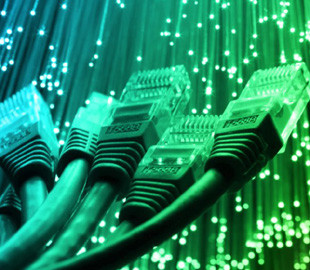
Researchers from Japan's National Institute of Information and Communication Technologies set a new world record for data transmission speed, reaching 402 Tbps (terabits per second).
They managed to achieve this thanks to the use of 50 km of standard
optical fiber and advanced amplification technologies, but the result far surpasses previous records and demonstrates the enormous potential of advanced Japanese research in the field telecommunications writes Youstory.
The peak speed was 402 Tbit/s or 50.25 TB/s, which is about 25% faster than the previous record set last October. Optical fibers are used as the backbone of the Internet worldwide and transmit digital information using modulated infrared, light, and ultraviolet signals. The scientists used as many transmission bands as possible, as well as state-of-the-art amplifiers, to achieve a total signal bandwidth of 37.6 THz. That is 100,000 times more than WiFi 7 can use, for example.
The record could be an important achievement for future telecommunications networks, as it extends the life of existing fiber optic systems without the need for expensive infrastructure upgrades. Researchers aim to extend their high-speed data transmission over vast transoceanic distances, which will further improve global communications. However, they admit that the immediate practical application of their achievement requires extensive research and considerable resources, since the success was achieved in optimal laboratory conditions.
Which allows you to make a speed of 402 Tbps
Theoretically, with this speed of the Internet, you can download 12,500 movies in a second, which is three times more than the entire Netflix library. Games like Baldur’s Gate 3, Red Dead Redemption 2 or Fallout 4 will load faster in tenths of a second.
But in practice, even the best gaming PCs have many bottlenecks, starting with  Ethernet port. Even if the motherboard is equipped with a state-of-the-art 10GbE or 10Gbps port, it is still slower than the achievement of Japanese engineers by a 400,000 times.
Users will also be limited by the speed of RAM or SSD. They just can't write data fast enough to keep up with such fast internet. A top-of-the-line device can easily handle a 1 Gbps home fiber connection, but there's no way it'll handle 412,000 Gbps.
